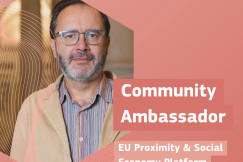Best practices
30 April 2025
Data Food Consortium – Enabling Interoperability in Short Food Supply Chains
Best practices
30 April 2025
Regenerative Green Transition
Transformative Digital Transition
Proximity and social economy
+7 more
Login / create an account to be able to react
-
7

The Data Food Consortium (DFC) is a French multi-stakeholder initiative working to boost interoperability across digital platforms in short food supply chains.
Topics
France
Social Economy Entity
-
Thematic area
-
-
Regenerative Green Transition
-
Transformative Digital Transition
-
-
Interlinkages with other sectors
-
-
Proximity and social economy
-
Agri-food
-
-
Action areas and keywords
-
-
Digital Platforms
-
Public and private tech partnerships and support
-
Tech for Good
-
-
Ecosystem focus
-
-
Proximity economy
-
Social economy
-
-
Scope of activity
-
-
National
-
Share
By co-developing a shared data standard - the DFC Standard the Data Food Consortium (DFC) enables seamless communication between local producers, cooperatives, distributors, and digital tools. This helps farmers manage stock and update listings across multiple platforms from a single-entry point, significantly reducing administrative overhead.
One key challenge was reconciling diverse data models and vocabularies used by different actors. DFC overcame this through co-creation workshops, engaging a wide range of platform developers and food system stakeholders to collaboratively define a common semantic model.
Transferability:
The DFC model is highly transferable to other regions or sectors where fragmentation across digital tools hinders collaboration. The open-source nature of the standard, combined with practical documentation and implementation guides, allows local ecosystems - such as farmers' markets, CSAs, or food hubs - to adapt the model to their specific contexts. Moreover, the methodology used to co-create the standard—based on trust, dialogue, and inclusive governance—offers a replicable process for other sectors aiming to harmonise data systems while respecting local autonomy.
DFC’s work shows how shared digital infrastructure can strengthen food sovereignty and sustainability by making small-scale actors more digitally resilient and interconnected.
Comments (0)
See also
-
18
Abacus: Education and Culture as Drivers of Social Change
- Categories
- Partnerships Regenerative Green Transition Skills +30 more
-
7
INCIEN – Accelerating Circular Economy Transitions in Central Europe
- Categories
- Partnerships Regenerative Green Transition Skills +24 more
-
97
PSE Platform Ambassador highlight: Flaviano Zandonai and National Consortium CGM
- Categories
- Partnerships Regenerative Green Transition Skills +68 more




